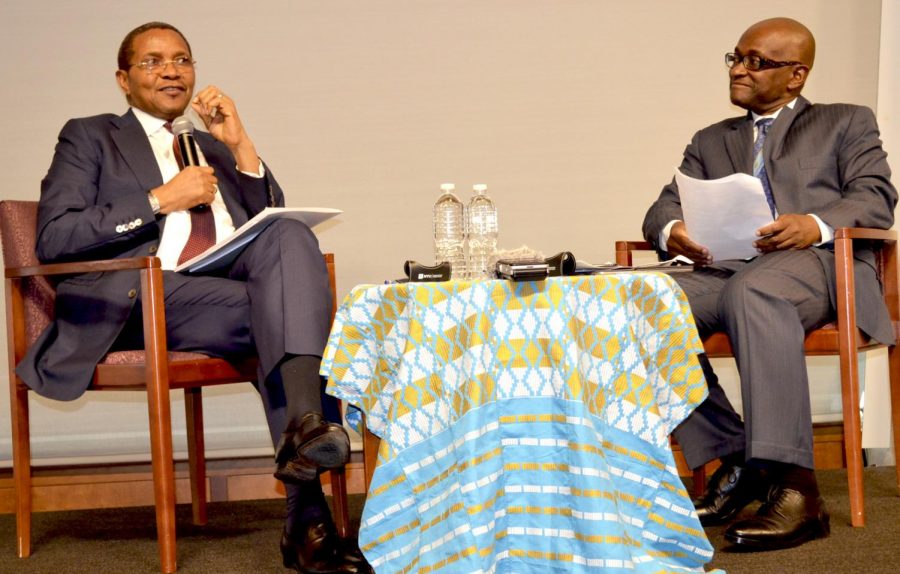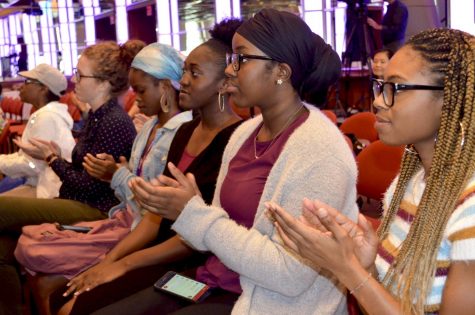Former Tanzanian President Speaks at NYU
September 24, 2018

Former President Jakaya Kikwte speaks about how he became president, his life afterwards and his upcoming memoir, which NYU’s Africa House has supported.
NYU’s Africa House has hosted some high-profile guests, including the former Presidents of Ghana, Namibia and Uganda. Its most recent visiting diplomat was the former President of Tanzania, Jakaya Kikwete, who spoke to diplomats, academics and Africa House members on Thursday evening.
After serving his 10-year tenure, he handed over power in a peaceful transition. He is currently writing his memoir, a book he credited the Africa House for supporting.
Kikwete kicked off the discussion by speaking about his tenure as president. In 1994, when Kikwete was 44 years old, he took office as one of the youngest finance ministers in Tanzania’s history. He first ran for president in 1995 and successfully won office in 2005.

NYU student audience members applaud Kikwte’s speech.
Kikwete spoke on how the power of political pressure can affect a president’s decisions.
“When you’re president, you do the things that others want you to do,” Kikwete said. “Don’t think that the president is so big. The president is so huge in office, but there are [other] people who dictate what the president should do.”
Kikwete described his rigorous daily routine when in office and the lack of privacy he felt when constantly accompanied by a security detail. Once, he said, he wished to visit a sick associate in the hospital but his security detail was reluctant to let him make the trip.
Kikwete then went on to speak about his life after the presidency. Since leaving office, he said he has found a passion for farming and founded a nonprofit organization.
Following this discussion of his post-presidential life, Kikwete spoke about his upcoming memoir, “The Journey of my Life: From a Barefoot Schoolboy to President.” In a continent where, for decades, history was mostly narrated by oral tradition, few public figures have published written memoirs.
NYU Africa House board member Eddie Bergman participated in the discussion and praised the former head of state. To increase readership of the upcoming memoir, Bergman suggested Kikwete have the book translated to Swahili, a language spoken by many in his home country of Tanzania.
“Somehow, you managed to be a hero and a leader at home,” Bergman said of the former president.
Other notable attendees included the Founding Director of Africa House and Professor of Economics Yaw Nyarko, who moderated the event, and NYU Deputy Provost Cybele Raver. Echoing attendees’ widespread sentiment, Nyarko and Raver praised Kikwete for leading an African nation democratically and for forging close relations with NYU.
A version of this article appeared in the Monday, Sept. 24 print edition. Email Benjamin Tetteh at [email protected].























































































































































